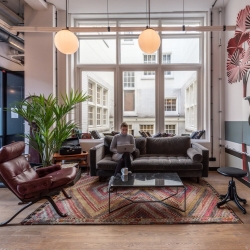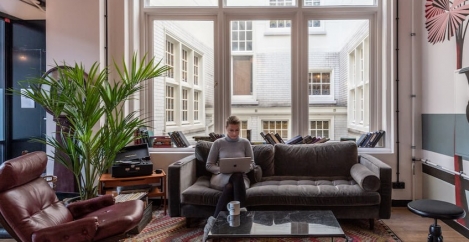September 15, 2023
Wellbeing, flexibility and work-life balance top most employees’ wish list in 2023
 The latest Employee Wellbeing Data Report [registration] from flexible office provider Mindspace claims that around 9 in 10 employees consider wellbeing facilities and offerings are ‘critical’ when choosing a workplace, and 82 percent expect support from their employers in achieving a work-life balance. The report argues that whilst the trend of ‘quiet quitting’ may be abating and the ‘return-to-office’ mandates are increasing, the survey suggests that attitudes towards the workplace and work-life balance continue to shift, with the majority of employees putting more emphasis on mental and physical health and overall wellbeing.
The latest Employee Wellbeing Data Report [registration] from flexible office provider Mindspace claims that around 9 in 10 employees consider wellbeing facilities and offerings are ‘critical’ when choosing a workplace, and 82 percent expect support from their employers in achieving a work-life balance. The report argues that whilst the trend of ‘quiet quitting’ may be abating and the ‘return-to-office’ mandates are increasing, the survey suggests that attitudes towards the workplace and work-life balance continue to shift, with the majority of employees putting more emphasis on mental and physical health and overall wellbeing.
The authors say that employee wellbeing has become a critical tool for empowering employee productivity and maintaining retention, which companies will need to take into account in order to remain competitive. According to the report, 43 percent of participants said the benefit with the greatest impact on employee wellbeing is flexible working hours. Other benefits mentioned include flexibility regarding work location (21 percent), free healthy meals (24 percent), more days off (33 percent), improved health insurance (16 percent) and physical amenities such as on-site gyms.
When asked about the negative effects of workplaces where wellbeing was not prioritised, 25 percent said such environments adversely affected their desire to stay at the company – half of respondents (50 percent) said they believed workers’ motivation would be most affected, followed by productivity (48 percent) and creativity (28 percent).
“With companies large and small gradually demanding their employees return to the office, now is the time for employers to rethink a future of work that incorporates flexible working options with regard to work hours and location, and that places more emphasis on benefits enhancing employee wellbeing,” said Dan Zakai, Mindspace CEO and Co-Founder. “This latest survey suggests that employees are taking a more holistic approach to their workplace – with growing expectations for hybrid work models, amenities that support work-life balance, or enhanced healthcare coverage. Companies that believe in returning to the office and want to retain their top talent should be forward-thinking and must recognise that built-in wellness amenities are not a luxury but a strategic necessity to promote wellbeing, to boost retention and to drive organisational success.”
Mindspace conducted the survey based on interviews of 2,000 office workers across the US, UK, Germany, the Netherlands, Poland, Romania and Israel.













